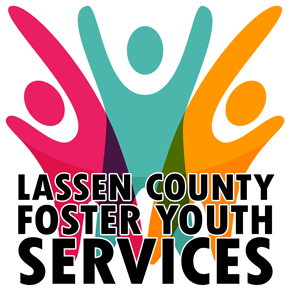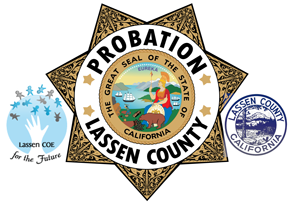

 Click here to download a simple explanation of your Foster Youth Education Rights
Click here to download a simple explanation of your Foster Youth Education Rights
Medi-Cal for Former Foster Youth
If you are a former foster youth under the age of 26, you qualify for FREE Medi-Cal coverage, which includes health, dental, vision, mental health, and substance abuse services.
This Medi-Cal coverage is FREE for you.
Once you are enrolled, you will remain enrolled as long as you continue to meet all of the following criteria:
- You lived in foster care on your 18th birthday, in any state
- You are living in California
- You are under the age of 26
This free coverage is available regardless of your income or employment status, and you can sign up ANY TIME during the year.
If you already have Medi-Cal coverage: Ask your county Medi-Cal eligibility worker to make sure you are enrolled in “Medi-Cal Aid Code 4M”. Then you won’t have to do anything else.
If you do NOT already have Medi-Cal coverage:
If you left foster care at age 18 or older AFTER January 1, 2014, you automatically should have been enrolled in “Medi-Cal Aid Code 4M”. This didn’t always happen, but you can fix it using either of the methods below.
If you turned 18 BEFORE January 1, 2014, but are under age 26, you can apply using either of the methods below.
You can get “Medi-Cal Aid Code 4M” coverage using either of these methods:
Fill out this simple one-page form, and turn it in using the directions on the form, Click Here.
Apply through your county social services office.
Pick your county here to get contact information.
Contact the Foster Care Ombudsman Office if you have any questions, at: 1-877-846-1602 or fosteryouthhelp@dss.ca.gov.
 Free Money for Foster Youth for
Free Money for Foster Youth for
College or Career Training
If you are or were in foster care for at least one day, between the ages of 16 and 18 as a dependent or ward of the court and have financial need, you may qualify for up to $5,000 a year for career and technical training or college.
You don’t have to pay this money back.
You may also be able to use your grant to help pay for child care, transportation and rent while you’re in school.
You can use your Chafee Grant at any eligible California college or university or career or technical school, as well as schools in other states.
Click here to download more information about the California Chafee Grant
|
|
|
|
|
| KNOW THE LAWS AND YOUR RIGHTS |
|
|
You have the right to live in a safe, comfortable home with:
- enough clothes and healthy food
- your own place to store your things
- an allowance (if you are in a group home)
- a phone that you can use to make confidential calls (unless a judge says you cannot)
You have the right to:
- be treated with respect
- go to religious services and activities of your choice
- send and get unopened mail (unless a judge says someone else can open your mail)
- contact people who are not in the foster care system (like friends, church members, teachers, and others)
- make contact with social workers, attorneys, probation officers, CASAs, foster youth advocates and supporters, or anyone else involved with your case
- be told about your placement by your social worker or probation officer
No one can:
- lock you in a room or building (unless you are in a community treatment facility)
- abuse you physically, sexually or emotionally for any reason
- punish you by physically hurting you for any reason
- look through your things unless they have a good and legal reason
Connection with a Caring Adult:
You have the right to identify and maintain relationships with appropriate people who are important to you, as long as it's in your best interest. The intent of current law is that no child shall leave foster care without a permanent, caring relationship with an adult. Talk to your social worker or attorney about who is important to you.
|
|
You have rights at court.
You can:
- go to court and talk to the judge
- see and get a copy of your court report and your case plan
- keep your court records private, unless the law says otherwise
- be told by your social worker or probation officer and your attorney about any changes in your case plan or placement
You have health rights.
You can:
- see a doctor, dentist, eye doctor, or talk to a counselor if you need to
- refuse to take medicines, vitamins or herbs (unless a doctor or judge says you must)
If you are 12 years old or older, you have the right to information about your sexual health in a way that you understand it. This includes learning about the way sexually transmitted infections and diseases (STDs) are spread and how you can prevent them; how you can prevent pregnancy and what to do if you are pregnant
You have school rights.
You can:
- go to school every day
- go to after-school activities right for your age and developmental level
|
Remember your rights.
Also remember that the foster parent’s or group home’s job is to supervise you and keep you safe and healthy.
|
|
Being Treated Differently.
If you feel you are being harassed or discriminated against because of your sex, race, color, religion, sexual orientation, ethnic group, ancestry, national origin, gender identity, mental or physical disability or HIV status, or for any other reason, you should call the Foster Care Ombudsman Help-line for assistance.
|
|
|
You have the right to do some things on your own.
You can:
- have your own emancipation bank account (unless your case plan says you cannot)
- learn job skills right for your age
- work, unless the law says you are too young
- manage the money you earn (if right for your age, developmental level and it’s in your case plan)
- go to Independent Living Program classes and activities if you are old enough
You have family rights.
You can:
- visit and contact your brothers and sisters (unless a judge says you cannot)
- contact parents and other family members (unless a judge says you cannot)
You have other rights too.
You can:
- tell the judge how you feel about your family, lawyer, and social worker
- tell the judge what you want to happen in your case
- have your own lawyer
- live with a family member if that would be a safe place
- call the Foster Care Ombudsman Office and Community Care Licensing at any time
- get help with school if you need it
You can participate in social activities:
You have the right to participate in age-appropriate extracurricular, enrichment, and social activities such as church, school and community activites, sleep-overs with friends, scouting and 4-H, without requiring criminal background checks of chaperones, friends and friends' parents/supervisors.
|
|
|
|
|
|
| KNOW BEFORE YOU GO - Getting Through High School |
|
Because foster youth are moved around and switch schools a lot, they often fall off track to graduate from high school.
This should never stop a foster youth from striving to get their diploma or equivalency credential.
There are several options for you to complete high school and get your diploma without taking extra classes and tests.
- What is AB 167/216 graduation?
- How do I know if I can graduate under AB 167/216?
- If eligible, should I graduate under AB 167/216?
- What are the state graduation requirements?
- What else do I need to know about AB 167/216 graduation?
For the answers to these questions click here and download our AB 2015 Information Sheet

|
|
|
|
|
| TRANSITION SERVICES TO SUPPORT COLLEGE AND CAREER |
|
Many youth in foster care turn 18 years of age before graduating from high school. Several safeguards exist to help them complete their education and transition successfully into adulthood.
Under the federal Fostering Connections to Success and Increasing Adoptions Act of 2008, foster youth may remain eligible for Aid to Families with Dependent Children Foster Care (AFDC-FC) payments and other benefits until age 21 under certain conditions. WIC 11403.
Youth who do not qualify for extended foster care benefits under AB 12 but are attending high school, vocational program or a GED program full-time, and are reasonably expected to complete the program or receive a high school equivalency certificate, before their 19th birthday, may retain their AFDC-FC, Kin-GAP, or Cal-WORKS payments until they graduate or reach their 19th birthday. WIC 11253, 11403.01, 11405.
Click here to download information about Transition Services to Support College and Career from the California Foster Youth Education Task Force
|
|
|
|
|
|
|
INDEPENDENT LIVING PROGRAM
|
|
The core services are based on the youth’s individual needs and goals as described in their Transitional Independent Living Plan (TILP).
Services are designed to assist youth with: education, career development, financial budgeting skills, health, safety, housing and permanency.
Eligibility is determined by county social workers/probation officers. Youth are eligible for ILP services at age 16 up to their 21st birthday provided they meet essential criteria.
Click here to download the ILP Fact Sheet.
|
|
EXAMPLES OF SERVICES PROVIDED
- Daily living skills
- Money management
- Decision making
- Safety Skills
- Career Development
- Employment resources
- Medical
- Mental Health
- Educational Resources
- Help with accessing financial assistance for college or vocational schools
- Housing referrals
|
|
|
|



